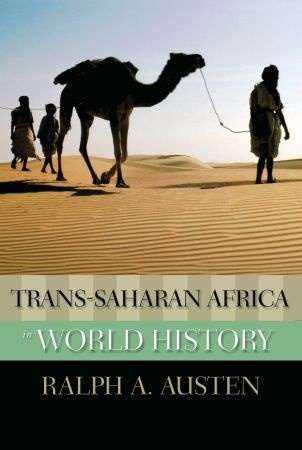En savoir plus
Zusatztext A brief, excellent primer to introduce students to the region...A sound history for libraries...and anyone not familiar with the essentials of Saharan history. Informationen zum Autor Ralph A. Austen is Professor Emeritus of African History at the University of Chicago. Klappentext The central theme of this book is the double role of the Sahara: as both a link between tropical Africa and the Mediterranean Islamic world; and as a restrictive/protective barrier that allowed considerable autonomy and originality to the southern Sahel ('shore') of the desert and its immediate hinterland. Thus Austen discusses the structural constraints upon caravan (as opposed to oceanic) long-distance trade but also show how this allowed considerable economicdevelopment to occur in the Sudan. Statecraft, urbanization, and literacy also remained limited by world standards of the medieval and early-modern eras, but a society and culture emerged that reflects a creative dialogue between the Mediterranean (global) and the African (local). Linkages to theAtlantic world during the first era of European expansion (extending up to the end of the 19th century for this region) intensified rather than undermined this process, but formal colonial rule, which substituted mechanized transport to the oceanic coast for caravan routes, finally marginalized the Sahara and the Sudan. Zusammenfassung During the heyday of camel caravan traffic--from the eighth century CE arrival of Islam in North Africa to the early twentieth-century building of European colonial railroads that linked the Sudan with the Atlantic--the Sahara was one of the world's great commercial highways, bringing gold, slaves, and other commodities northward and sending both manufactured goods and Mediterranean culture southward into the Sudan. Historian Ralph A. Austen here tells the remarkable story of an African world that grew out of more than one thousand years of trans-Saharan trading. Perhaps the most enduring impact of this trade and the common cultural reference point of trans-Saharan Africa was Islam. Austen traces this faith in its various forms--as a legal system for regulating trade, an inspiration for reformist movements, and a vehicle of literacy and cosmopolitan knowledge. He also analyzes the impact of European overseas expansion, which marginalized trans-Saharan commerce in global terms but stimulated its local growth. Indeed, trans-Saharan culture not only adapted to colonial changes, but often thrived upon them, remaining a potent force into the twenty-first century. Inhaltsverzeichnis 1: Introduction to the Sahara: From Desert Barrier to Global Highway 2: Caravan Commerce and African Economies 3: Ruling the Sahara and Its "Shores" 4: Islam 5: Islamicate Culture: Religions, Languages, Literature, and the Arts 6: European Colonialism: Disruption and Continuity of Trans-Saharan Links ...

